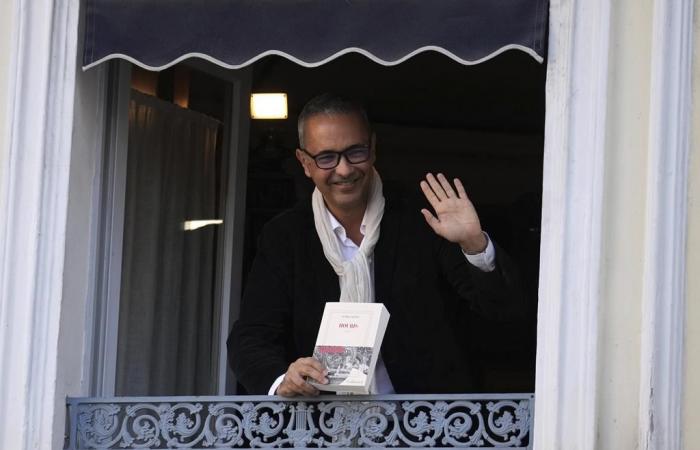The winner was chosen in the first round, by six votes, the Académie Goncourt said on its website.
The writer was recognized for his book where “lyricism competes with tragedy, and which gives voice to the suffering linked to a dark period in Algeria, that of women in particular”.
“This novel shows how literature, in its high freedom of auscultation of reality, its emotional density, traces alongside the historical story of a people, another memory path,” added the academy.
Daoud was nominated alongside three other novels, including that of Hélène Gaudy, “Archipels”, which finished in second place with two votes.
“Houris” tells the story of a young woman injured during the civil war in Algeria who explores her country’s past by speaking to the child growing in her womb.
On the X network, Kamel Daoud had a thought for his parents, “his deceased father and his mother who is still alive, but who no longer remembers anything”.
“It’s your dream, paid for by your years of life,” he wrote, linking a photo of his parents. There are no words to truly say thank you.”
Kamel Daoud worked for a long time in Oran, Algeria, but is now based in France. He began his career as a journalist, before devoting himself to writing.
Daoud also received the Goncourt prize for first novel in 2015 for “Meursault, contre-investigation”.
His subsequent books have also won several awards, including “Zabor ou Les Psaumes”, which received the Transfuge prize for best French-language novel 2017 and the 2018 Méditerranée prize.






